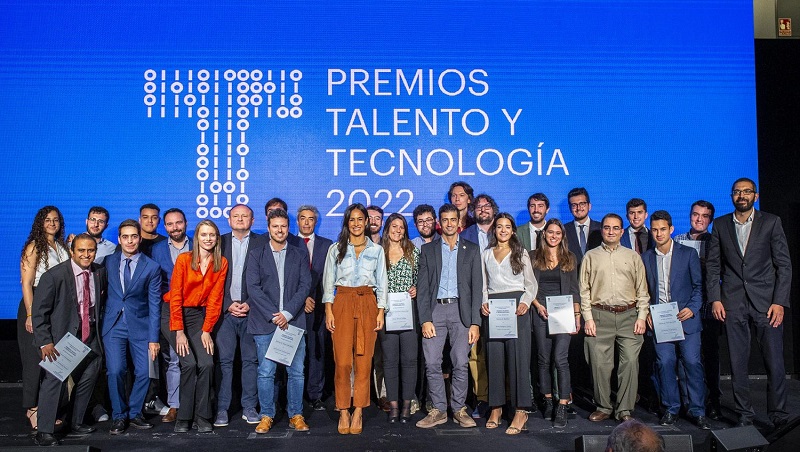
The Madrid City Council has awarded Marina Rodríguez Carreiro, a predoctoral researcher in the Polymer Biotechnology group of the Margarita Salas Center for Biological Research (CIB-CSIC) and belonging to the SusPlast ITP+, with the second prize for the best master’s thesis in the Circular Economy and Waste Management category of the 2022 Talent and Technology Awards.
The award-winning work is entitled "Revaluation of organic waste for the synthesis of bioplastics of microbial origin: production strategy, change of scale and isolation and purification studies" and was co-directed by Prof. Auxiliadora Prieto and Dr. Alberto Rodríguez, principal investigator and postdoctoral researcher, respectively, in the CIB’s group.
The Talent and Technology awards are organized by the General Directorate of Innovation and Entrepreneurship of the Madrid City Council and aim to reward the best doctoral theses and master's thesis in matters of technological innovation presented at universities based in the Community of Madrid. The purpose of these awards is to detect and retain talent in different technological fields, in order to promote and strengthen these skills among Madrid university students.
The award-winning master’s thesis focuses on the study of polyhydroxyalkanoates (PHAs), which represent one of the alternatives with the greatest potential as substitutes for conventional plastics, based on sustainability and circular economy criteria. They are biologically based polymers, biodegradable, and synthesized as reserve substances by a multitude of microorganisms such as Pseudomonas putida. In this work, the growth medium and production of PHAs and the culture conditions for P. putida KT2440 have been optimized, in order to increase the production of cellular biomass and the accumulation of the biopolymer, studying the limitation of phosphorus in a discontinuous regime and using glucose as a carbon source. It was observed that the decrease in the initial content of phosphates in the culture medium increases the rate of accumulation and production of PHA. In addition, as a secondary effect of bacterial metabolism, glucose assimilation causes acidification of the medium, which inhibits cell growth, making it necessary to apply a pH control strategy. Increasing the stirring speed improves the overall speed of the process. Tests of this bioprocess were also carried out in a semi-continuous mode of operation, applying a co-feed of glucose and sodium octanoate, which allowed prolonged cell growth and significantly improved the results of PHA yield and productivity. Finally, experiments for the isolation and purification of the environmentally friendly intracellular bioplastic were carried out, concluding the need for additional extraction and precipitation steps to improve the overall yield of PHA recovery.
In this second edition, the awards ceremony took place on October 1 at La Nave, an innovation space of the Madrid City Council. The gala was presented by the science popularizer and YouTuber José Luis Crespo (Quantumfacture) and was attended by Begoña Villacís, Deputy Mayor of the Madrid City Council; Miguel Ángel Redondo, delegate of the Government Area of Economy, Innovation, and Employment; Ana Castro, deputy vice president of knowledge transfer at the CSIC and authorities from different universities in the Community of Madrid.

